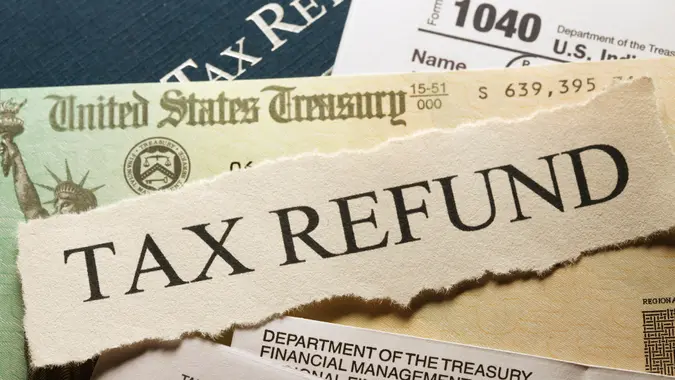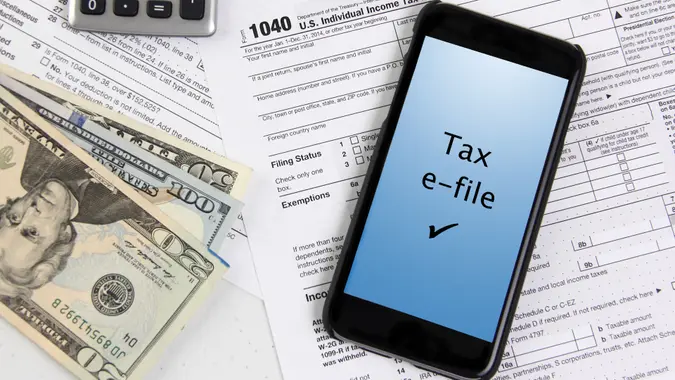Want to Make Your Vacation Tax Deductible? Here’s How

Commitment to Our Readers
GOBankingRates' editorial team is committed to bringing you unbiased reviews and information. We use data-driven methodologies to evaluate financial products and services - our reviews and ratings are not influenced by advertisers. You can read more about our editorial guidelines and our products and services review methodology.

20 Years
Helping You Live Richer

Reviewed
by Experts

Trusted by
Millions of Readers
After more than a year of being cooped up, Americans are getting antsy and wanderlust is back again, evidenced by packed airports across the country recently. If you’re a small business owner or self-employed, this welcomed development could come with additional perks, such as making your vacation tax deductible.
But there are some specific steps taxpayers need to take to make some write-offs available.
First, to legally deduct your vacation, the primary purpose of the trip must be business. While many people have enjoyed remote work over the last year, bringing your computer on a family vacation doesn’t meet the standards for the IRS, Tom Wheelwright, CPA and author of Tax-Free Wealth, tells GOBankingRates.
“You must have a business reason for taking the trip and you must be traveling to a location outside of where you do your day-to-day business,” he says.
Many aspects of a trip are tax deductible, including 100% of transportation by plane, train, bus, rental car and more. Additionally, you can write off 100% of lodging on the days that you work.
“This means that if you’ve done work on Thursday and Friday, but enjoyed family time on Saturday and Sunday, only two days of lodging are deductible. Thanks to current coronavirus relief, you can also deduct 100% of business meals through 2022 as long as the expenses aren’t lavish or extravagant under the circumstances,” Wheelwright says.
Indeed, in April 2020 the Treasury Department and the Internal Revenue Service provided guidance under the Taxpayer Certainty and Disaster Relief Act of 2020. “The Act added a temporary exception to the 50% limit on the amount that businesses may deduct for food or beverages. The temporary exception allows a 100% deduction for food or beverages from restaurants,” according to the IRS.
“Beginning January 1, 2021, through December 31, 2022, businesses can claim 100% of their food or beverage expenses paid to restaurants as long as the business owner (or an employee of the business) is present when food or beverages are provided and the expense is not lavish or extravagant under the circumstances,” the notice further explains.
Wheelwright also recommends that to write things off, you will need proper documentation. “So be sure to keep track of your receipts and make sure they have the date, amount, the business relationship or activity noted.”
He adds that unfortunately, friends and family can’t take advantage of the same deductions while on a trip together unless they’re also business owners on a business trip.
“However, they can enjoy the use of shared spaces like the rental car or a hotel room,” he says.
There are additional items that can be deducted such as laundry and dry cleaners, according to the IRS. Any tips you leave can be added as well.
Keep in mind that the IRS is extremely specific (and perhaps a bit confusing) as to the terminology it uses, for example when defining travel expenses:
“For tax purposes, travel expenses are the ordinary and necessary expenses of traveling away from home for your business, profession or job. An ordinary expense is one that is common and accepted in your trade or business. A necessary expense is one that is helpful and appropriate for your business. An expense doesn’t have to be required to be considered necessary,” it explains.
More From GOBankingRates
 Written by
Written by  Edited by
Edited by 

























